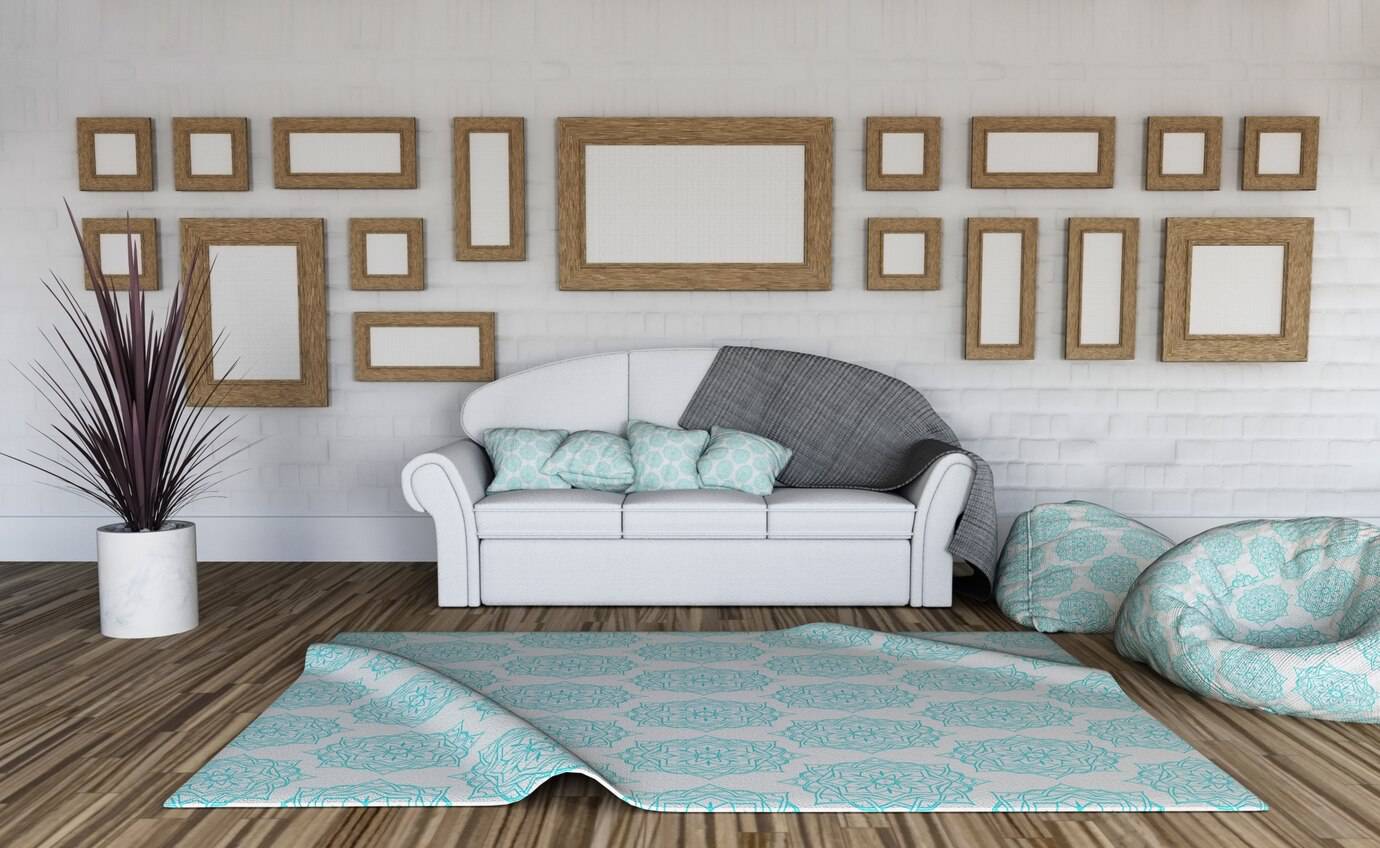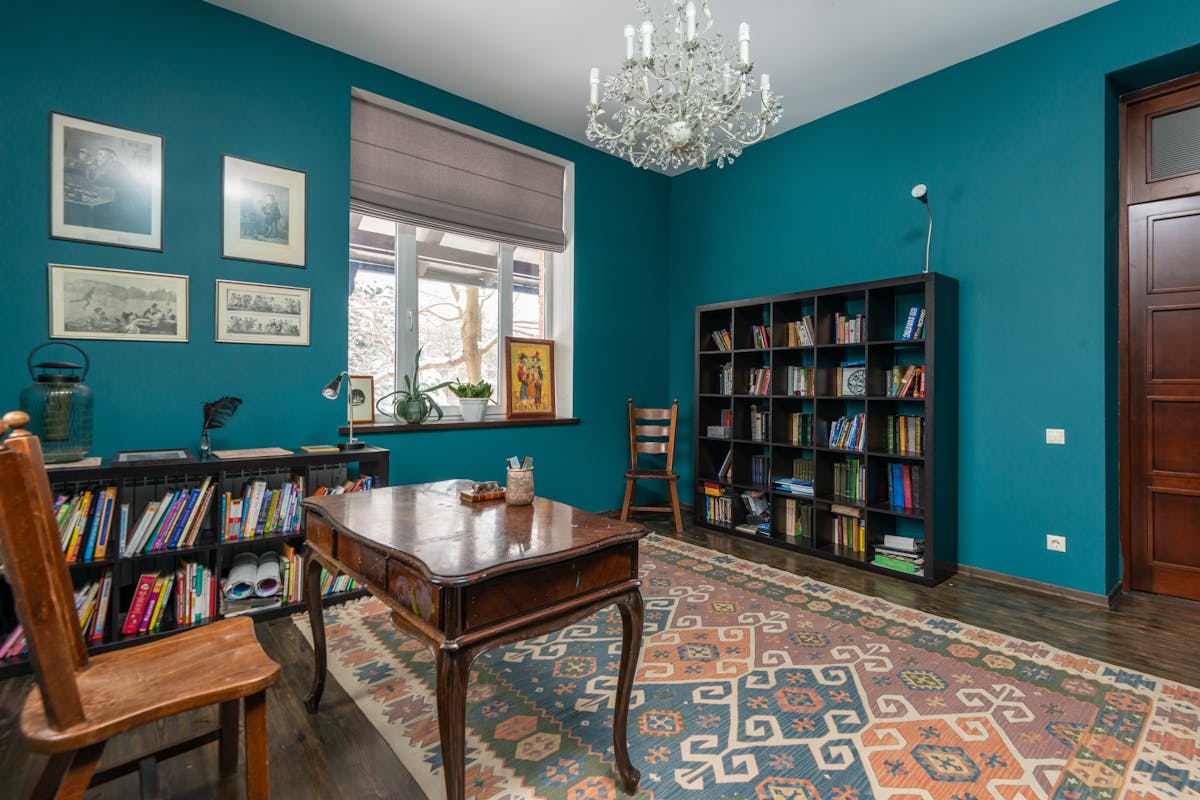
Paint a Scandinavian Pattern Rug
There’s something wonderfully grounding about stepping onto a rug that feels just right — soft, simple, and quietly stylish. But finding a rug that fits your vision (and your budget) isn’t always easy, especially if you’re drawn to the understated elegance of Scandinavian pattern and texture.
That’s where this painted rug project comes in. Instead of scouring shops for the perfect piece, why not create your own? Painting a rug not only gives you total creative control, but it’s also an eco-conscious, cost-effective, and deeply satisfying way to personalise your space with DIY Nordic decor flair.
In this guide, we’ll walk you through how to design and paint a Scandi-inspired rug, from selecting your materials to choosing patterns, painting clean lines, and finishing touches. Whether you want a runner for your hallway, a statement piece for your living room, or just a fun weekend project, this is one DIY you’ll love living with every day.
Why a Painted Rug Works in Scandinavian Interiors

Minimalism with Character
Scandi interiors strike a delicate balance: they’re clean, calm, and curated, but never sterile. A hand-painted rug offers that same quiet appeal — it brings:
- Soft pattern without overwhelming the space
- Texture and warmth to wooden or tiled floors
- A customisable look that aligns with your palette and layout
It’s also a way to introduce subtle, meaningful design — the kind that adds soul, not clutter.
Sustainable Style
Scandinavian design embraces reuse and simplicity. This project gives old rugs a new lease on life, avoiding landfill waste and fast-fashion homeware. And because it’s handmade, your rug becomes a story — not just a surface.
Materials & Tools You’ll Need
You don’t need fancy supplies to create beautiful DIY decor. Here’s a straightforward list:
Rug Base
- Flatwoven cotton or jute rug (IKEA, H&M Home, or even second-hand)
- Colour: Neutral base (white, cream, grey, natural) works best
Paints & Brushes
- Fabric paint or acrylic paint mixed with fabric medium
- Painter’s tape or low-tack masking tape
- Foam brushes or small stiff-bristle brushes
- Optional: Stencil or stamp for repeat patterns
Other Essentials
- Drop cloth or plastic sheeting
- Ruler or measuring tape
- Pencil or chalk
- Iron (if needed to flatten)
- Clear fabric sealer (optional but helpful for durability)
Painted Rug Project
Prep the Rug
- Wash and thoroughly dry your rug.
- Iron or press to remove any creases — a flat surface is key to clean lines.
- Lay the rug on a protected work area (like a tarp or old sheet).
Real-life note: Anna, a graphic designer in Brighton, painted her runner over a few evenings on the kitchen floor. “I used painter’s tape and a yoga mat as my kneeling pad — no studio needed!”
Choose Your Scandinavian Pattern
This is where your creativity (and Nordic inspiration) comes in.
Classic Scandinavian Motifs
- Triangles – Symbolising mountains or trees
- Lines and grids – Minimalist yet graphic
- Snowflake or star shapes – Subtle nods to Nordic winter
- Chevron or herringbone – Soft geometry for movement
Stick to one or two colours for that true Scandi palette: soft black, slate grey, charcoal, warm beige, or muted sage are perfect.
Pattern Planning Tips
- Use Pinterest or fabric swatches as pattern references
- Sketch your design on paper first — mark dimensions
- Keep spacing consistent using a ruler or cardboard template
Mark and Tape Your Design
This is where precision pays off:
- Use painter’s tape to outline your pattern or block sections
- For geometric shapes, measure twice and tape once
- Press the edges down firmly to prevent paint bleeding
Want a more organic feel? Skip the tape and hand-paint freeform lines for a wabi-sabi, perfectly imperfect look.
Mix and Apply Paint
If using acrylic paint, mix it 2:1 with a fabric medium to keep the rug soft and prevent cracking.
- Dip your brush or sponge and dab off excess
- Apply thin, even coats — better to build up than overdo it
- Let each coat dry fully (approx. 30–60 minutes) before adding more
Avoid dragging your brush — especially on jute or woven rugs — as it can fray fibres or lift tape.
Add Details (Optional)
Want to go the extra mile?
- Use a stamp (carved from linoleum or potato!) for repeating motifs
- Add initials, a subtle border, or small contrast shapes
- Consider hand-stitched or embroidered accents if you’re feeling crafty
Scandi detail idea: One row of soft grey dashes along the edge adds just enough intrigue.
Dry, Cure, and Seal
- Let the rug dry flat for 24–48 hours — don’t rush this part
- For cotton rugs, heat-set the paint with an iron (check paint label first)
- Optionally apply a fabric sealant for added durability, especially if in a high-traffic area
Styling Your Painted Rug: Room by Room Inspiration
Living Room
- Layer your painted rug over a larger neutral jute base
- Position under a coffee table or reading chair
- Style with a linen cushion and light wood side table
Entryway or Hall
- A long runner with geometric stripes or arrows adds direction
- Durable and low-pile rugs are best for shoes and muddy feet
- Add a wall-mounted peg rail above for a complete Scandi look
Kitchen
- Paint a slim rug for in front of the sink or island
- Choose washable, natural fibres for easy cleaning
- Keep patterns simple — think tone-on-tone diamonds or crosses
Bedroom
- Place beside the bed for a soft morning landing
- Try moon-inspired curves or gentle triangles in chalky tones
- Match with linen throws or muted wall art for cohesion
Real-Life Example: Sofia’s Minimalist Masterpiece
Sofia, a stylist in Malmö, turned a tired IKEA rug into a showstopper with just grey paint and tape.
“I taped off thick stripes — some straight, some diagonal — and painted them in layers,” she says. “Now it sits in my home office, and everyone asks where I bought it. Best part? It cost under £20.”
Her rug is styled with a whitewashed desk, a bamboo plant, and a sheepskin on the chair — a true Scandinavian vibe on a shoestring.
Common Mistakes (And How to Avoid Them)
- Using too much paint: Thin layers are your friend
- Skipping prep: Wash and press your rug before you paint
- Poor tape quality: Use painter’s tape, not masking tape
- Overcomplicating the design: Scandi style = less is more
- Skipping a topcoat: For longevity, especially on cotton
Sustainability Tip: Upcycle an Old Rug
This project isn’t just for blank rugs. You can:
- Paint over faded designs on old rugs
- Revive kids’ mats or yoga rugs into stylish new pieces
- Use scrap fabric or drop cloths to make a DIY rug from scratch
Every reused piece keeps one more item out of the landfill.
Where to Buy Supplies (UK/EU Sources)
- IKEA – Flatwoven rugs at low prices
- Cass Art – Fabric paint and supplies
- Fred Aldous – Craft and fabric mediums
- Etsy – Handmade stencils and natural paint options
- Wilko / Hobbycraft – Budget-friendly brushes and drop cloths
Art You Can Walk On

Creating a painted rug project is a beautiful way to personalise your home while embracing the gentle practicality of Scandinavian pattern and ethos. It’s a project that marries creativity with calm — turning a blank canvas into a functional work of art that lives underfoot.
This isn’t about perfection. It’s about purpose. With every brushstroke, you’re adding a story, a texture, a mood. Your finished rug won’t just protect the floor — it’ll set the tone for the whole room.
So, what will you paint? A few clean triangles? A snowy grid? Or maybe a symbol from your own journey?


